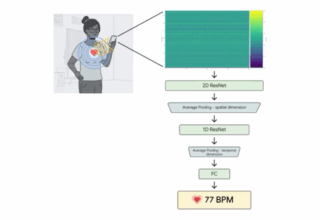The third phase of the Presidential Initiative ‘English as a Life Skill’ through which the President takes English Language Skills across the country with a special focus on Spoken English, is being launched by the President from Temple Trees in the morning of Tuesday February 19, 2013.
Releasing the creativity latent within the State Education System
For the first time in the history of language teaching and learning in our schools, a set of 50 English language learning DVDs for grades 10 and 11 will be launched together with a Toolbox of Activities for Spoken English, grades 6 – 11, to be used in the public school system.
Prepared on a directive of the President, these innovative new language teaching tools have been produced by mobilizing the skills and talents available in the State Education System within the Ministry of Education.
This demonstrates most clearly that all the necessary skills and competences – both technological and pedagogical – for English language teaching are available within the country’s State Education System in the Ministry of Education, if only these talents are mobilized creatively and imaginatively by a catalytic agency which is ready to place its faith and confidence in the innate ability and creative potential of our own language teachers, especially are rural English teachers.
It should be a catalyst who is also ready to place their trust in the competence and efficiency of our own State institutions to deliver successfully provided they are given the freedom to think and act creatively without being harshly dictated from above and tied down with too many pointless administrative rules and strictures.
The Presidential Task Force did exactly this – namely, create and jealously protect an environment of freedom and innovation in the State Education System of the Ministry of Education especially at the school level where English teaching and learning are practical concerns.
A template of 9,730 schools
Working on a template of 9,730 schools spread across nine provinces and 90 educational zones, progress cannot be but slow. But what has been achieved by the Presidential Initiative within a short span of 3 ½ years remains far in excess of what could have been expected when the President launched this particular language planning activity – English as a Life Skill – from Temple Trees not so long ago in July 2009.
Moving in measured steps towards Testing Listening and Speaking Skills at GCE (O/Level)
The measured steps through which the Initiative grew from almost a non-entity in 2009 into being a household word in every family with a school-going child – ‘the President’s Life Skill programme’ or ‘Janadhipathithumage Life Skill Veda Satahana’ – by 2013, are interesting to recall as we enter the third phase of the programme which has as its overall goal the preparing of the English teacher community and the country’s children for the testing of Listening and Speaking Skills at the GCE (O/L) examination, commencing in 2015 with an initial allocation of 10 marks going up to 30 marks in stages in the years to follow.
Sri Lanka will then be the first country in the whole of Asia and most other parts of the world as well with the intellectual tools and institutional capacity to test Speaking and Listening Skills in English in a public examination on a mass scale at national level on a single day.
We move towards this goal with total confidence in ourselves, our institutions, our teachers and our students.
Phase I: June 22, 2009 to July 19, 2010 – laying a solid foundation
Learning a language at young age important
The Presidential Initiative to take spoken/communicative English skills across the country and especially across our villages was launched by the President from Temple Trees on June 22, 2009.
* Within the thirteen months of its implementation (June 2009 – July 2010) the image of the English language as a weapon of social oppression and a statement of elitism was substantially – though not totally – transformed into that of an essential life skill for communication, employment and access to the external world of knowledge and technology.
* While Sri Lankan English is being received as the informal, spoken variety of English in the country, International Standard English is being accepted as the formal or written form of the language.
* During the thirteen months that comprised the first phase of the Presidential Initiative on ‘English as a Life Skill’, 60 percent of the 22,500 English teachers of the country were trained by the Ministry of Education and the nine Provincial Ministries to teach Spoken/Communicative English to our students with support from the Education for Knowledge Society Project (EKSP) whose Director came forward courageously to provide the critical initial support for what was seen at that time as ‘a very ambitious programme fraught with risk and uncertainty’.
* During this phase a strong new national cadre of 80 Master Trainers of Spoken English from all nine provinces trained at the English and Foreign Languages University (EFLU) in Hyderabad was established with Indian government assistance with 320 Assistant Trainers to help them.
* Also during this phase the country’s first comprehensive Teacher Guide for Spoken English was produced, used and revised after one year by the new cadre of Master Trainers in English representing all 9 provinces in the country for use by all English language teachers in the public school system.
* As increasing numbers of teachers received training from the EFLU trained Master Trainers and their Assistants in the teaching of Spoken English, all schools were instructed by circular to devote one period per week (20 percent of teaching time) for Spoken English.
* Also during this initial phase, a massive national campaign was conducted with great success by the Presidential Initiative in all schools and through the print and electronic media to dispel the fear of English from the Sri Lankan mindset and break through the major obstacle that stood in the way of the child acquiring the ability to speak in English, – a partly socio-cultural partly psychological one – sustained by the way that English was till then being delivered as the language of a privileged social class from which the vast majority of our children found themselves excluded.
* And finally a special Presidential Programme Unit (PPU) was established at the Ministry of Education at ‘Isurupaya’ to work in harmony with the Presidential Task Force and the Presidential Secretariat.
Phase II: July 19, 2010 to February 19, 2013 – The New Order gets firmly rooted in the school system
With the successful completion of the Phase I of the Presidential Initiative, the launching of its Phase II by the President took place on Monday July 19, 2010 from Temple Trees. During the Phase II which continued for two and half years the following achievements of the Presidential Initiative are noted.
* The training of the remaining 40 percent of the English teachers of the country to teach spoken/communicative English to our students was successfully completed. All English teachers in the public school system without exception have thus received 80 hours of immersion in the teaching of spoken English.
* All English lecturers in the National Colleges of Education (NCoEs) were trained by the national cadre of Master Trainers to transfer the techniques of teaching spoken English to English teachers awaiting recruitment and currently studying in these institutions.
* The new techniques of communicating listening and speaking skills to students through teachers as contained in the ‘Teacher Guide on English as a Life Skill’ were integrated into the NCoE curriculum. The Teacher Guide for the teaching of Spoken English now used in the public school system was made available through the NCoEs to all new English teachers awaiting recruitment.
* A 100 hour Course in English with a strong emphasis on Spoken English was developed during this phase and a programme was launched through which all Principals and Deputy Principals of schools will receive English language training for 100 hours.
* By the end of this phase nearly 5,000 Principals and Deputy Principals across the country successfully completed this course which will continue till all Principals and Deputy Principals receive training.
* Meanwhile, a 60 hour Advanced Course in English was partially developed during this phase and will be administered when completed to all Principals and Deputy Principals who successfully complete the 100 hour Course in English.
* The strengthening of the capacity of English teachers, all of whom have now acquired the skills of teaching Spoken English was undertaken through a number of interrelated activities.
* While School Based Assessment (SBA) Tools for the evaluation of the language skills of the students in Grades 10 and 11 at classroom level were developed in Phase 1 and included in the Teacher Guide, SBA tools were likewise developed by the National Institute of Education (NIE) in respect of all other Grades and printed and are in the process of being distributed to all teachers of English in our schools.
* Examination and Assessment Guidelines in respect of English in Grades 10 and 11, developed by the Department of Examinations were reviewed and reprinted and are in the process of being distributed to all English teachers in Grades 10 and 11 in our schools.
* As a further aid to the teacher and learner communities, English Activity Rooms equipped with state-of-the-art technology including multi-media facilities were constructed in 308 schools across the country.
* During this phase, the English Language Master Trainer cadre was further strengthened through the training of 42 more Master Trainers recruited from all Provinces at the English and Foreign Languages University (EFLU), Hyderabad, India through scholarships granted by the Indian Government.
* Also during this phase, a programme was developed for monitoring the impact of the Presidential Initiative in all the schools in the country, giving priority to schools teaching English at G.C.E. (O/L).
* Implementation of the Monitoring Programme commenced in all nine provinces with the participation of Assistant Directors of Education/English, In Service Advisors (ISAs) and Master Trainers and of other Resource Persons where necessary, all of whom received the necessary training for implementing the programme.
* In order to make the teaching and learning of English exciting and enjoyable, a Toolbox of Activities for Spoken English, 30 for each Grade 6 -11, was developed through a participatory effort of the English teacher community in the public school system, to be launched at the inauguration of Phase III of the initiative.
* This Toolbox of Activities is intended to draw the child away from the classroom which is a very dull and uninteresting place in a formal setting where the teachers struggle to cover the syllabus more than to teach and where there is no way of exploring the hidden talents of the students and the creative skills of the teachers, to a new exciting learning environment of activities outside the classroom.
* Also during this phase, the Presidential Initiative successfully mobilized the necessary talent and expertise from within the State Education System to plan and produce 50 DVDs for the teaching of English to students in Grades 10 and 11 through a distance education mode, with a focus on Spoken English.
* This marks the first serious attempt to teach any school subject comprehensively to students through a distance education mode and is thus a proud achievement of Phase II of the Presidential Initiative. This set of DVDs will be released to the school system by the President at the launch of Phase III of the Presidential Initiative – ‘English as a Life Skill’ where sets of DVDs will be given to 2,000 schools from all provinces.
* At one level, the DVDs will provide an ICT based teaching aid to our teachers of English while at another level they will provide a partial substitute for the teacher in those unfortunate schools which may have no English teacher in Grades 10 and 11.
Launch of Phase III by the President – February 19, 2013: The breakthrough into ICT Assisted Distance Learning of English
The commencement of Phase III of the Presidential Initiative takes place on February 19, 2013 with the launch by the President of an English Language Teaching Software Series of 50 DVDs for the teaching of English in Grades 10 and 11 together with a Toolbox of Activities for Spoken English, the announcement of the testing of Spoken English at the GCE (O/L) examination from 2015 with an allocation of 10 marks for a start, and the announcement by the Sri Lanka Rupavahini Corporation of the telecasting of the 50 DVDs over National Television every Saturday at 7.00 p.m., commencing Saturday February 23, 2013.
Preparing the students on the one side and the English teacher community on the other for the testing of Speaking and Listening skills in English at the G.C.E. (O/L) examination is the overall goal of the new phase of the Presidential Initiative.
Organized jointly by the Ministry of Education and the Presidential Secretariat, the launch of the third phase of the Presidential Programme marks yet another landmark in the initiative taken by the the President to generate a next generation of Sri Lankan youth empowered with English as a Life Skill.
Taking English as a Life Skill across the 9,731 schools where our children study has been and continues to be no easy task with the human and other resources presently available in the school community.
It is to assist those schools that may not have English teachers or where English teaching is weak that the President suggested to us that we mobilize the talent within the system to produce an English Language Teaching Software Series geared to the syllabi to be used as a teaching aid in our schools.
The first software series in the form of 50 DVDs has been produced for Grades 10 and 11 and will be distributed for a start to 2,000 of the 6,788 schools having GCE (O/L) classes. Designed and produced by our own rural English Teachers, Education Officers and the National Institute of Education (NIE), this new teaching aid will help strengthen the English teacher and learner communities of our country for the challenge that lies ahead.
The depth of talent in the State Education System
The production of both the DVDs and the Toolbox of Activities for Spoken English proudly demonstrates the depth of talent available in the State Education System. And we of the Presidential Secretariat congratulate the Ministry of Education and in particular the National Institute of Education (NIE) and the Presidential Programme Unit (PPU) of the ministry who together with the Special Initiatives Unit (SIU) of the Presidential Secretariat mobilized the appropriate talent from within the State Education System to produce the first ever English Language Teaching Software Series for our schools.
While the Presidential Task Force congratulates the Minister of Education, the Provincial Ministers of Education and their respective staff for the success achieved in the Presidential Initiative – ‘English as a Life Skill’, it recognizes with deep gratitude and affection the unqualified guidance, support and leadership provided to its work by the Secretary to the President, Lalith Weeratunga who steers the initiative skillfully along the President’s Vision.

















